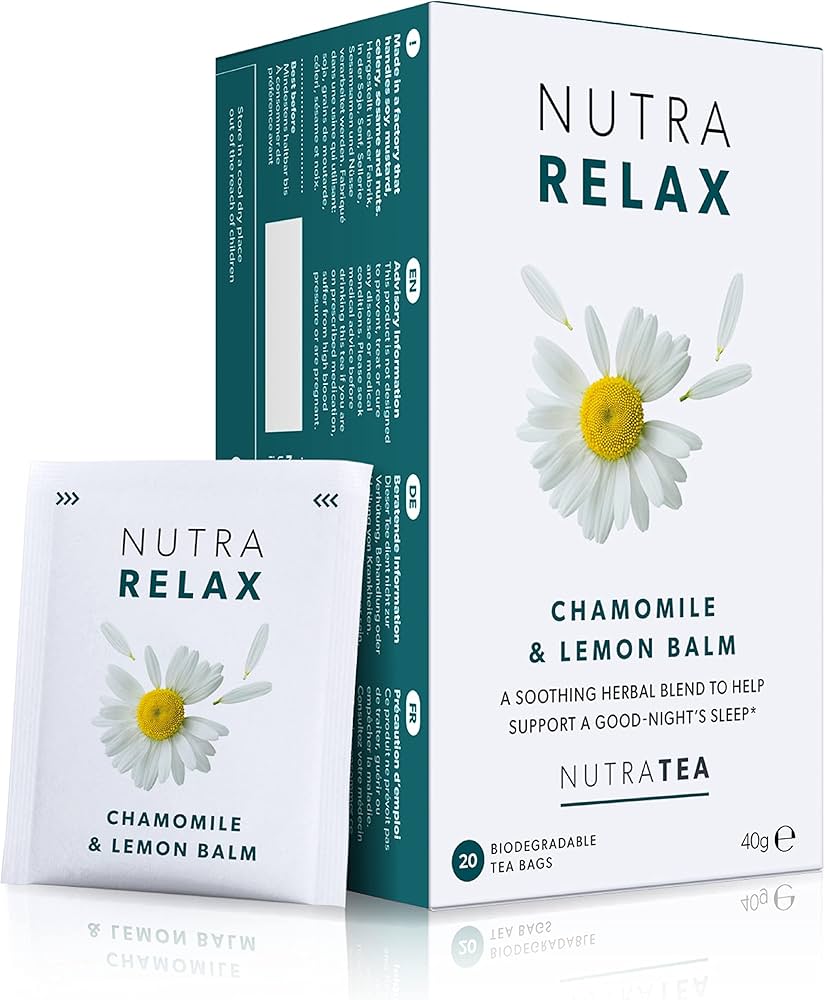9 Best Teas for Sleep: Natural Remedies for a Restful Night’s Sleep
Struggling to get a good night’s sleep? You’re not alone. Many people find it challenging to unwind and drift off after a long day. Fortunately, nature offers a soothing remedy: tea. Certain herbal teas can help calm your mind and body, making it easier to fall asleep and stay asleep.
In this article, we’ll explore the nine best teas for promoting restful sleep. From classic chamomile to lesser-known blends, these teas offer a natural way to enhance your nighttime routine. So, grab your favorite mug and discover which teas can help you achieve the restful sleep you deserve.
Discovering Herbal Teas: Natural Remedies for Better Sleep
If you’re struggling to get a good night’s sleep, herbal teas might be the solution you need. These natural remedies can help calm your mind and body, making it easier to drift off peacefully.
Chamomile Tea: A Soothing Classic
Chamomile tea’s well-known for its calming effects. It contains apigenin, an antioxidant that binds to receptors in your brain, promoting relaxation and reducing insomnia symptoms. Many people enjoy a warm cup before bed to help them unwind and prepare for sleep.
Valerian Root Tea: The Powerful Sleep Promoter
Valerian root tea’s potent for easing insomnia and improving sleep quality. It works by increasing gamma-aminobutyric acid (GABA) levels in your brain, which has a calming effect on your nervous system. Many studies have shown valerian root to be effective in reducing the time it takes to fall asleep and improving sleep quality.
Lavender Tea: Fragrant and Relaxing
Lavender tea’s perfect for winding down before bed with its soothing aroma and calming properties. It’s known to reduce anxiety and stabilize mood, making it easier for you to doze off. Brewing a cup of lavender tea before bedtime can help you create a relaxing nightly ritual.
There you have it—a few herbal teas that can help you enjoy a better night’s sleep. Explore these options and find the perfect one to fit your nightly routine.
Exploring Non-Herbal Teas for Sleep Improvement
While herbal teas are a popular choice, non-herbal teas can also contribute to better sleep. Let’s look at two effective options.
Green Tea with Low Caffeine: A Gentle Option
Choosing green tea with low caffeine can help you relax without the stimulating effects of regular green tea. Look for varieties labeled as low caffeine or decaffeinated. These options still contain L-theanine, an amino acid that promotes relaxation and reduces stress. Enjoying a cup an hour before bed can set the stage for restful sleep.
Magnolia Bark Tea: An Ancient Solution for Sleep
Magnolia bark tea, valued for centuries in traditional Chinese medicine, offers potent sleep-enhancing benefits. This tea contains honokiol and magnolol, compounds known to reduce anxiety and improve sleep quality. Brew a soothing cup to enjoy its calming effects. You may find it helps you fall asleep faster and stay asleep longer.
The Role of Amino Acids in Sleep-Inducing Teas
Amino acids like L-theanine significantly contribute to the relaxing properties of certain teas. These natural compounds help your body transition smoothly into a restful state.
How L-Theanine in Tea Helps in Sleep Regulation
Promotes Relaxation Without Drowsiness
L-theanine boosts relaxation without making you feel drowsy during the day. Found in green tea and black tea, L-theanine enhances alpha brain wave production, promoting a calm and alert state.
Reduces Stress and Anxiety
L-theanine helps reduce stress and anxiety levels, contributing to better sleep quality. According to several studies, consuming L-theanine can lower heart rate and improve sleep patterns by reducing mental stress.
Enhances the Effects of Other Sleep-Inducing Compounds
L-theanine works synergistically with caffeine to enhance its calming effects. Many sleep-inducing teas combine L-theanine with other tranquil compounds or herbs to maximize their sleep-promoting benefits.
Considering Decaf Options for Nighttime Tea Rituals
Exploring decaf options can enhance your nighttime tea rituals without compromising sleep. Consider these alternatives to maintain your evening relaxation.
Decaf Black Tea: Enjoying Tradition without Disruption
Savor decaf black tea to enjoy traditional flavors minus the caffeine jitters. This tea preserves the rich, robust taste you love, making it perfect for teatime enthusiasts. Decaf black tea contains theaflavins and thearubigins, antioxidants that support your health. They’re known to reduce inflammation and boost overall wellness.
Rooibos Tea: A Caffeine-Free Alternative
Switch to rooibos tea for a soothing, caffeine-free option. This South African red tea boasts a unique, sweet flavor that’s naturally free from caffeine. It’s packed with antioxidants like aspalathin and nothofagin, which help reduce stress and promote better sleep. Rooibos is also low in tannins, making it gentle on your stomach and ideal for nightly rituals.
Blending for Better Sleep: Combining Ingredients
Creating a custom blend can enhance the effects of sleep-inducing teas. Mixing specific herbs and flavors can make your nighttime routine more enjoyable and effective.
Creating Your Own Sleep-Inducing Tea Blend at Home
Select Ingredients Wisely. Choose calming herbs like chamomile, valerian root, and lavender as your base. These herbs are known for their soothing properties.
Add Flavors. Enhance the taste of your blend by incorporating spices like cinnamon or ginger. Not only do they improve flavor, but some spices also have relaxing effects.
Use Ratios. Mix your ingredients in proper ratios—usually 2 parts calming herb to 1 part flavor enhancer. This ensures the dominant effect is relaxation.
Store Properly. Keep your blend in an airtight container away from light and moisture. This preserves the potency of the ingredients.
Experiment. Adjust the blend based on your taste preferences and how it affects your sleep. Each person’s response can be different, so find what works best for you.
Tips for Incorporating Tea into Your Nightly Routine
Integrating sleep-inducing teas into your evening can greatly enhance your ability to unwind and prepare for rest. Here are some practical tips to make the most of your nightly tea ritual.
Best Practices for Brewing Sleep-Inducing Teas
Use Fresh Ingredients: Opt for fresh, high-quality ingredients when brewing your tea. Fresh herbs and tea leaves provide better flavor and more potent calming effects.
Steep Properly: Steep your tea for the right amount of time. For most herbal teas, a steeping time of 5-10 minutes is optimal. This allows the full spectrum of beneficial compounds to infuse into the water.
Control Water Temperature: Use water that’s hot but not boiling, roughly 200°F (93°C), to preserve the delicate flavors and efficacy of sleep-inducing compounds. Boiling water can destroy some of the beneficial properties.
Avoid Additives: Keep your sleep tea simple. Avoid adding caffeine, sugar, or artificial flavorings as they may counteract the tea’s soothing effects.
When to Drink Tea for Optimal Sleep Benefits
Time Your Tea: Drink your tea about 30-60 minutes before bed. This gives your body time to absorb the beneficial compounds and start winding down.
Create a Routine: Make tea a consistent part of your nightly routine. This consistency can signal to your body and mind that it’s time to prepare for sleep, helping you to relax more effectively.
Consider Any Medications: If you’re on medication, check with your healthcare provider to ensure there are no interactions with the sleep-inducing tea preparation you’ve chosen.
By following these tips, you can enhance the calming effects of your teas and turn your nightly tea ritual into a powerful tool for better sleep.
Conclusion: Embracing Tea as Part of Your Sleep Hygiene
Incorporating the right teas into your nightly routine can significantly enhance your sleep quality. By choosing teas like chamomile, valerian root, or green tea with L-theanine, you’re leveraging natural remedies to calm your mind and body.
Remember to steep your tea properly and control the water temperature to maximize its benefits. Timing your tea consumption and maintaining a consistent routine are key to optimizing its effects. Always consider any potential interactions with medications to ensure your safety.
By embracing these tips and making tea a part of your sleep hygiene, you’ll be well on your way to achieving more restful and rejuvenating nights.






